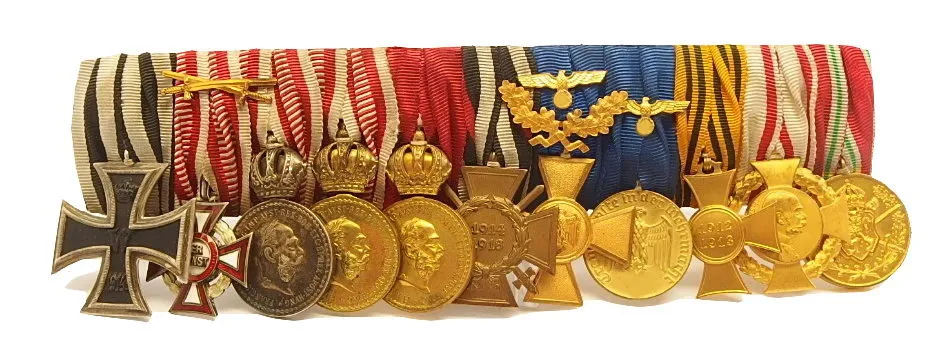Main page
»
World War 2
»
Medals / decorations
»
Sleeve shield "Lappland", made of aluminum, bundle of one person
Wir sind stets interessiert an dem Ankauf von Militaria,
sei es einzelne Soldatensachen, kleine Sammlungen
oder umfangreiche militärische Nachlässe und Sammlungen.
Unser Ankaufsinteresse erstreckt sich bundesweit sowie
in die angrenzenden EU-Länder.
Benötigen Sie Informationen oder möchten Sie uns etwas zum Kauf anbieten,
Klicken sie hier auf " Kontakt " und rufen uns an oder schreiben uns.
Wir freuen uns darauf, von Ihnen zu hören.
Ihr ww2-Militaria-shop Team
sei es einzelne Soldatensachen, kleine Sammlungen
oder umfangreiche militärische Nachlässe und Sammlungen.
Unser Ankaufsinteresse erstreckt sich bundesweit sowie
in die angrenzenden EU-Länder.
Benötigen Sie Informationen oder möchten Sie uns etwas zum Kauf anbieten,
Klicken sie hier auf " Kontakt " und rufen uns an oder schreiben uns.
Wir freuen uns darauf, von Ihnen zu hören.
Ihr ww2-Militaria-shop Team
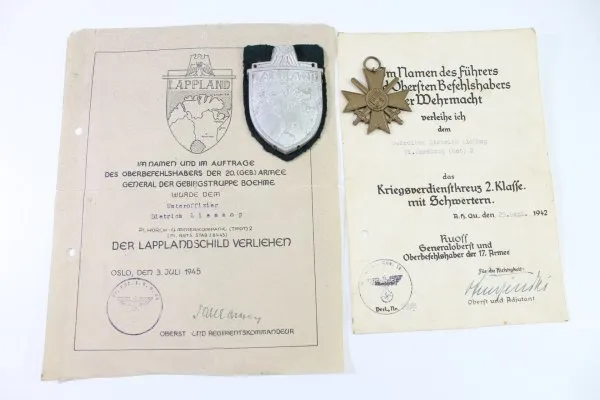
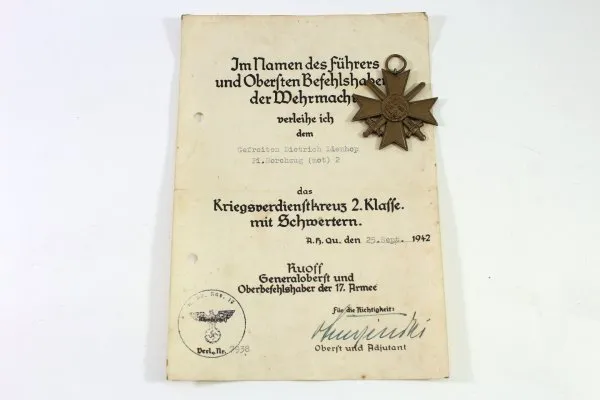
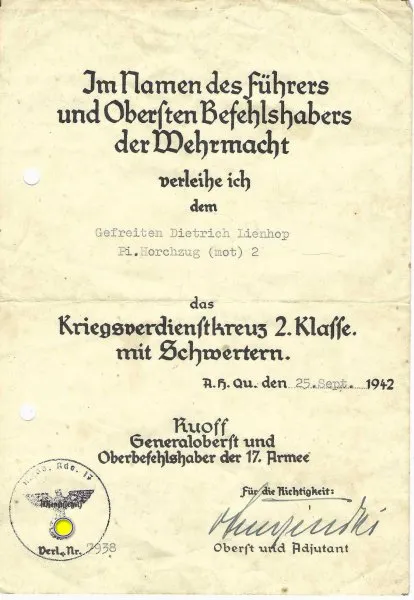
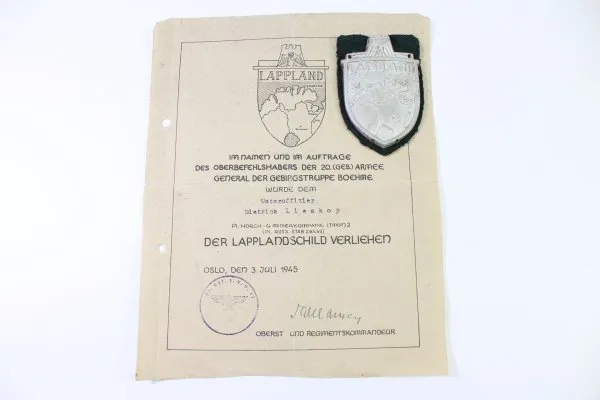
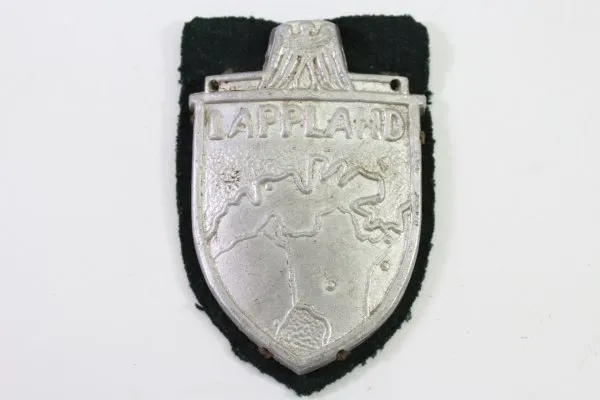
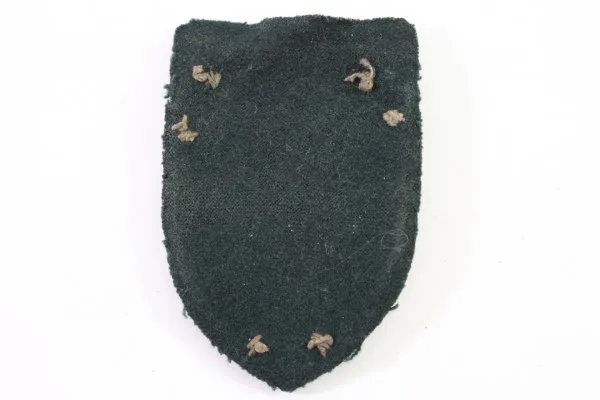
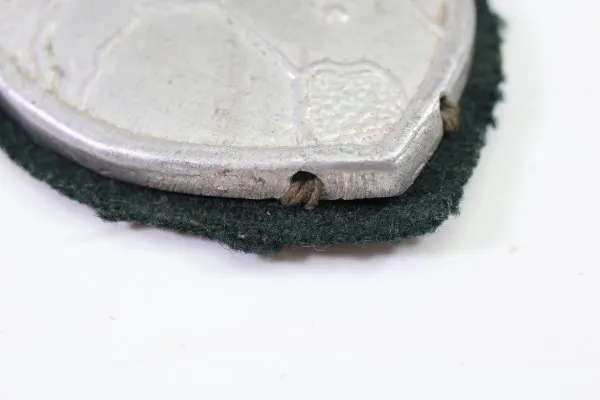
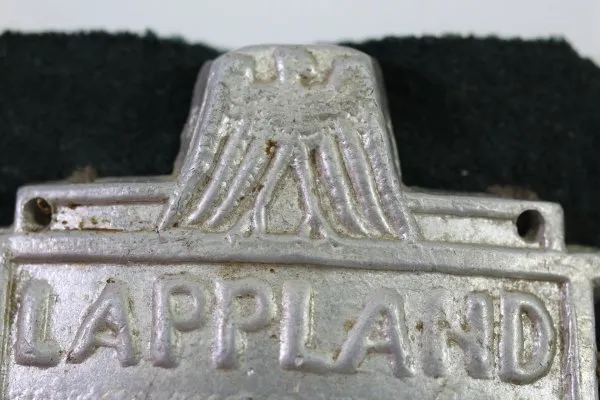
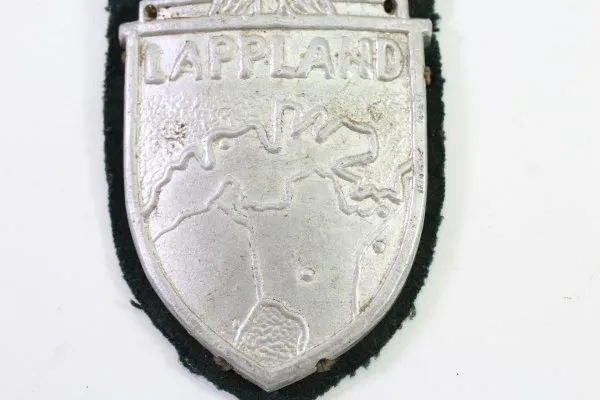
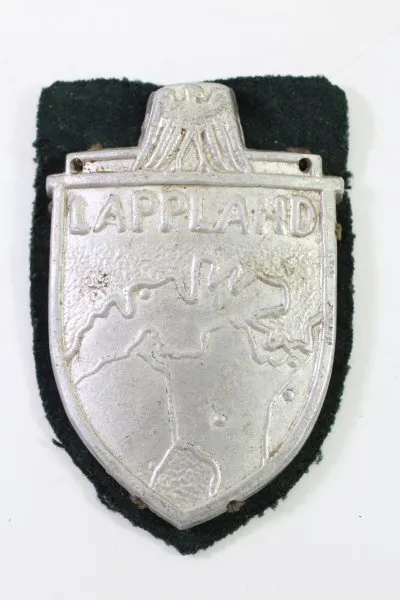
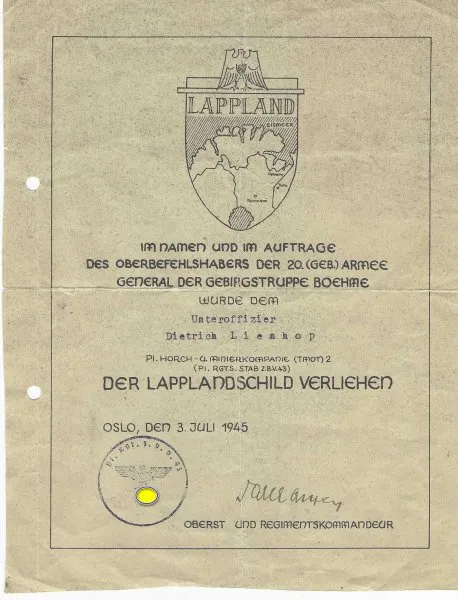











Sleeve shield "Lappland", made of aluminum, bundle of one person
NEW
Lot of "Lappland" sleeve badges, made of cast aluminum, with 4 holes on the side for sewing onto the uniform with award certificate
Extremely good version of the Lappland shield, all of which were made by hand in 1945. Still sewn onto a piece of fabric.
Lot consisting of Lappland sleeve badge with certificate and War Merit Cross 2nd Class with swords as well as the corresponding certificate from one person.
The Lappland shield was a "commemorative badge" for all members of the 20th Mountain Army who had served with the troops for at least 6 months. These sleeve badges were made before the 1945. An official donation was planned but could no longer be implemented. Often you see certificates on stretchers where the drawn shield is not identical to the one worn. In this case, the drawing of the shield on the award certificate is identical to the sleeve badge itself. The father's name is noted on the back of the sleeve badge certificate; the certificate is punched and slightly shortened.
The War Merit Cross certificate is also punched. The name of the bearer on both certificates is identical and belongs to one person. The unit of the recipient is interesting:
Pioneer. Listen 4.Miner Companies TMOT 2
The Pioneer Listen and Miner Companies were pioneer units of the mini-troops that were responsible for building mined shelters and for fending off expected mining attacks. Other tasks included detecting underground mining activities by the enemy and setting up listening and listening mine barriers to monitor sparsely manned areas and wide, frozen bodies of water. The units were formed in 1944/45 from the Pioneer Listening Platoons 1 - 33.
Extremely good version of the Lappland shield, all of which were made by hand in 1945. Still sewn onto a piece of fabric.
Lot consisting of Lappland sleeve badge with certificate and War Merit Cross 2nd Class with swords as well as the corresponding certificate from one person.
The Lappland shield was a "commemorative badge" for all members of the 20th Mountain Army who had served with the troops for at least 6 months. These sleeve badges were made before the 1945. An official donation was planned but could no longer be implemented. Often you see certificates on stretchers where the drawn shield is not identical to the one worn. In this case, the drawing of the shield on the award certificate is identical to the sleeve badge itself. The father's name is noted on the back of the sleeve badge certificate; the certificate is punched and slightly shortened.
The War Merit Cross certificate is also punched. The name of the bearer on both certificates is identical and belongs to one person. The unit of the recipient is interesting:
Pioneer. Listen 4.Miner Companies TMOT 2
The Pioneer Listen and Miner Companies were pioneer units of the mini-troops that were responsible for building mined shelters and for fending off expected mining attacks. Other tasks included detecting underground mining activities by the enemy and setting up listening and listening mine barriers to monitor sparsely manned areas and wide, frozen bodies of water. The units were formed in 1944/45 from the Pioneer Listening Platoons 1 - 33.
